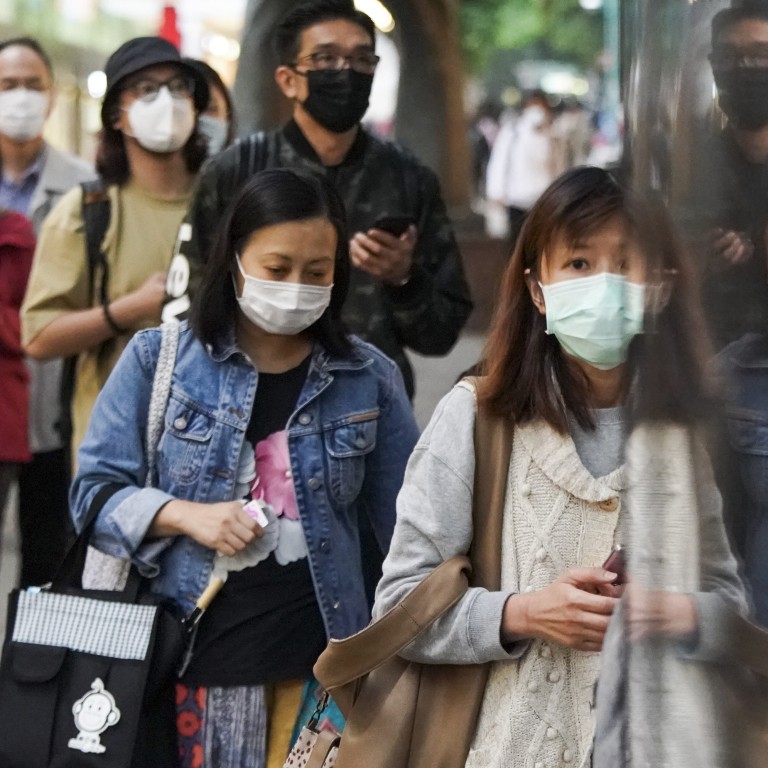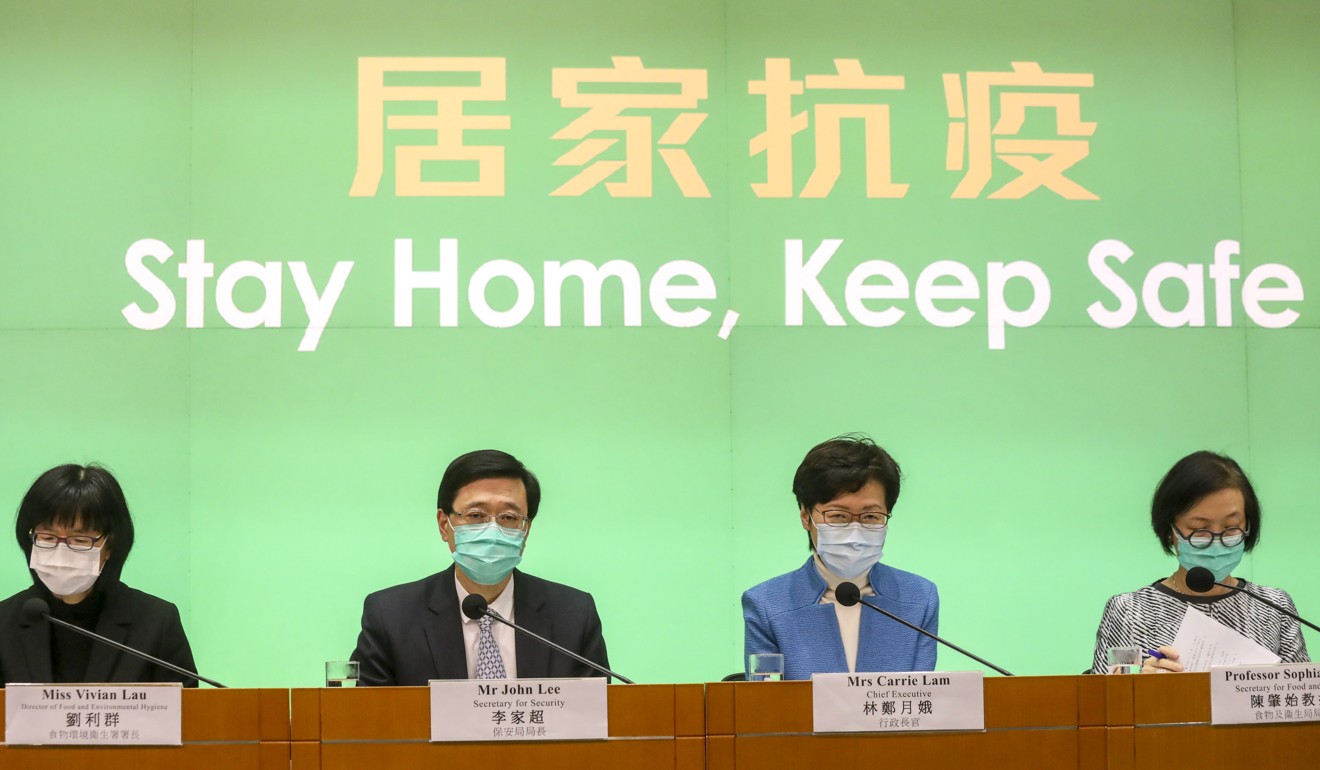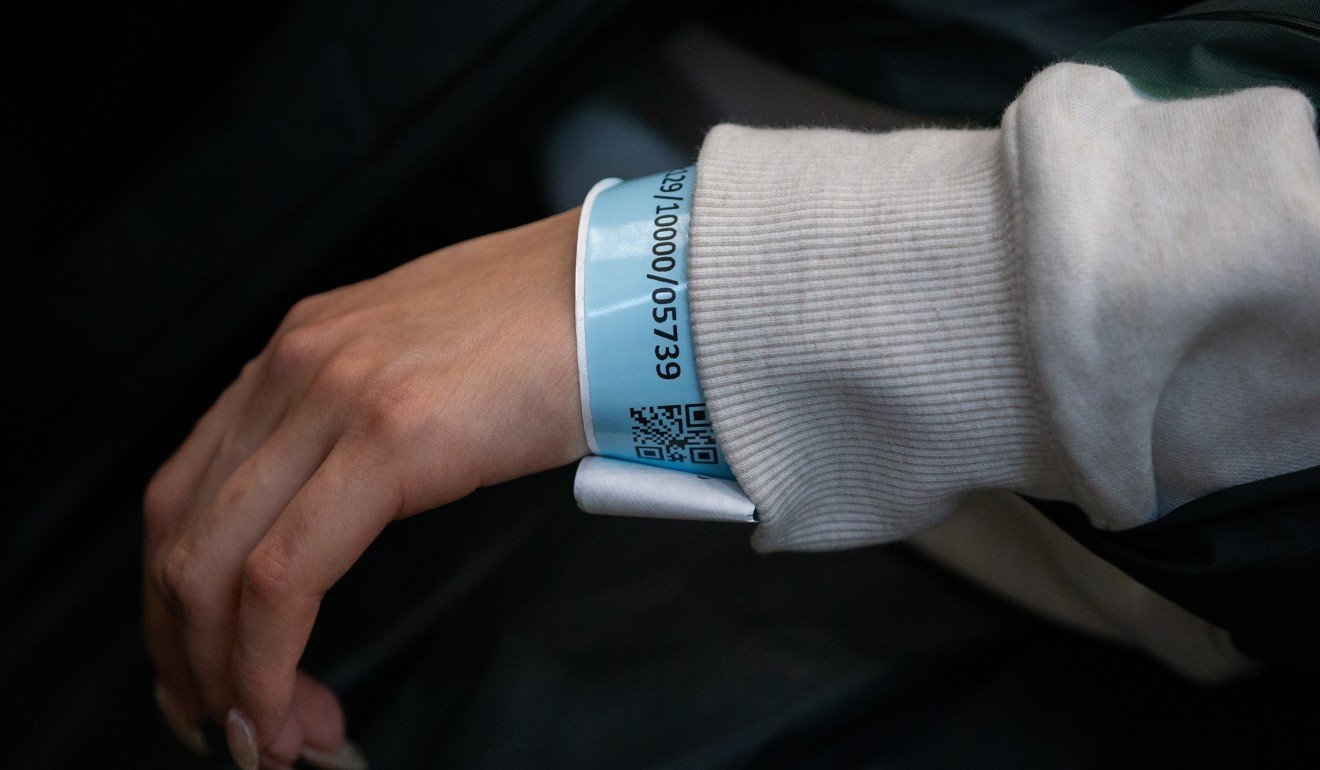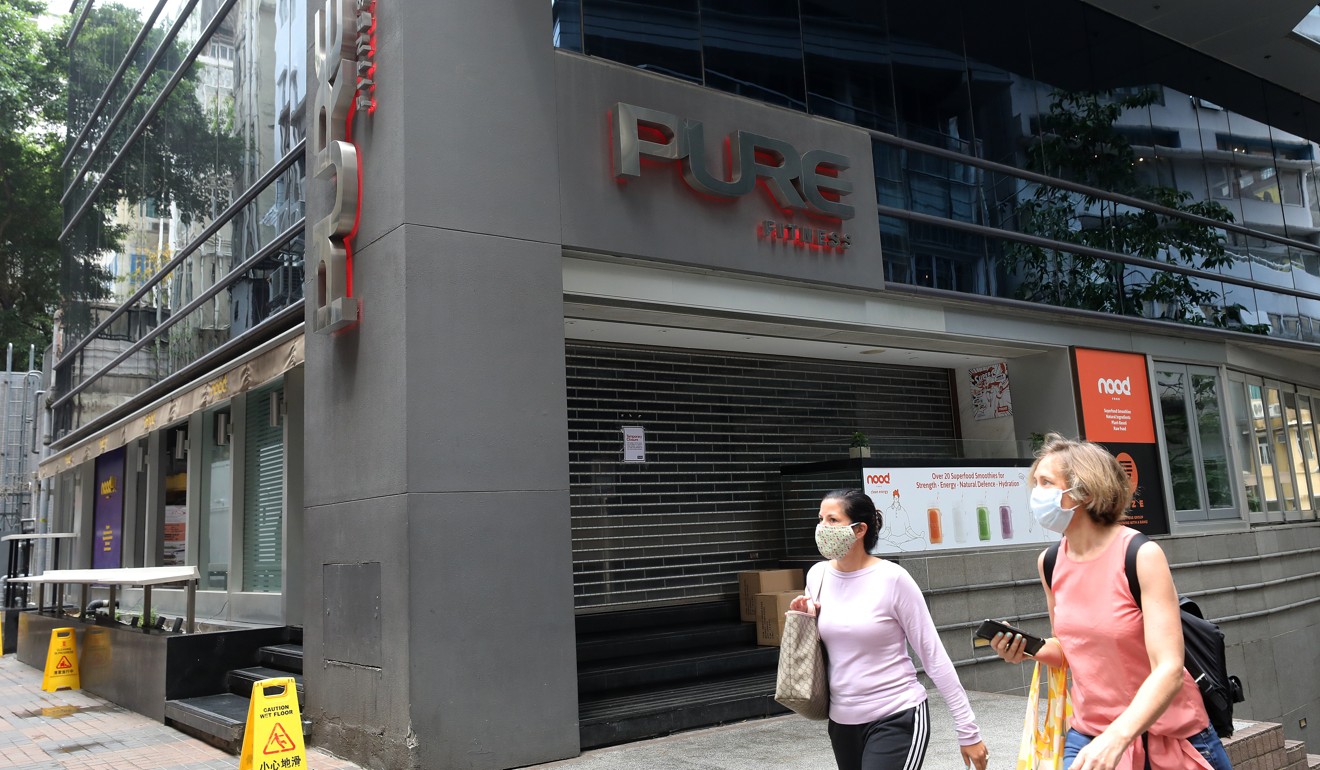
Coronavirus: Hong Kong to limit public gatherings to four and shut cinemas, gyms and other social spots as cases jump by 65
- Tough new measures aimed at enforcing social distancing as the city records its largest daily rise in infections
- But the government will not ban alcohol sales for now amid fierce backlash from the industry
Chief Executive Carrie Lam Cheng Yuet-ngor warned of a “public emergency situation” on Friday as a record 65 new infections took the total number of Covid-19 cases to 518, most of them again brought in by Hongkongers returning from overseas.
“The consensus is perhaps that any measures to tackle the issue of infection should not focus on a particular sector or a particular setting,” Lam told a press conference. “The crux of the matter is to reduce social interactions.”
Pointing to the city’s growing outbreak, Lam noted the number of cases had risen threefold from 138 recorded two weeks ago. “Many of the infected people went to bars, weddings and private parties, which we categorise as social interactions,” she said.
The ban on groups of more than four people will come into effect on Sunday and last 14 days. There will be no limit on how many people can congregate in private settings or at work. Neither will the rule apply to public transport, weddings, funerals, courts or government buildings and meetings.

Six types of establishments that attract large gatherings – cinemas, fitness centres, saunas, party venues, gaming centres and places of amusement, such as pool halls – will also be shut for two weeks, beginning Saturday. All of the barbecue spots and campsites managed by the government will close and patrols in the area stepped up.
Most facilities managed by the Leisure and Cultural Services Department will be closed. These include all parks, playgrounds, outdoor pitches and tennis and basketball courts. The government previously suspended services at beaches, indoor sports centres and public libraries.
More than 21,000 dead as UN warns of threat to ‘whole of humanity’
Lam said the administration would require restaurants to limit the number of diners at each table to four, with each table 1.5 metres apart, starting Saturday night. Bars and restaurants will only be allowed to operate at half their capacity and must check patrons’ temperature and provide hand sanitisers for them.
Spot checks will be carried out by the Food and Environmental Hygiene Department and violators in the catering industry will be subjected to a maximum penalty of a HK$50,000 (US$6,450) fine and six months in jail. People who flout the public gathering law can be fined up to HK$25,000 and given a six-month sentence, according to the latest amendments to the Prevention and Control of Disease Ordinance.
She said that the proposal on banning alcohol sales had been a suggestion and that it was not “entirely correct” to say a decision had been made over enacting the relevant legislation.
The community so far agreed that a ban on liquor is not the right antidote
“The community so far agreed that a ban on liquor is not the right antidote in minimising social interactions under a public emergency situation,” Lam said. “We instead should carry out tougher measures by enforcing two laws to enhance social distancing and limit public gatherings.”
Since Wednesday, all foreign tourists have been banned from Hong Kong, while travellers are no longer allowed to transit through the airport. All residents arriving from overseas, along with people from Taiwan, Macau and mainland China, must self-isolate for two weeks.
The government said all arrivals would receive a jar to later provide a deep throat sample, which must be returned to health clinics within a specified time frame. Previously, the sampling kits were handed out to about 1,000 people a day, mostly elderly travellers and returnees from hard-hit countries such as Britain.
The expansion of the testing came as Health Secretary Professor Sophia Chan Siu-chee revealed that 0.9 per cent of samples collected tested positive for the coronavirus, although the infected people had not shown any symptoms.
When asked whether her administration had been too slow to step up containment measures, Lam said it was important to consider the overall number of infections.
Hong Kong ranks very low when compared to other countries in terms of absolute numbers
“Yes, we are very worried about the surge of cases in Hong Kong … but Hong Kong ranks very low when compared to other countries in terms of absolute numbers and the incidence of infection per 1 million people,” Lam said.
Over the past week, the government has been evacuating hundreds of residents stranded in Hubei province in mainland China, where the first cases were recorded. Lam said they were not required to wear electronic wristbands as were overseas returnees because of limited resources.

“We have to be very realistic and find a way forward in order to make full use of the short supply of resources to achieve the objective on a sustainable basis,” she said. But she added that she was confident that Hong Kong “could win the battle very soon”.
Secretary for Security John Lee Ka-Chiu said 77 people had been found in violation of orders to stay at home, 40 of them reported by residents. They would be prosecuted after further investigation, he said.
A member of Lam’s panel of medical experts, Professor David Hui Shu-Cheong, said the rules struck a balance between the need for businesses to survive and social distancing.
“But if the epidemic worsens in early April, 14 days after we started mandatory quarantine for all arrivals, the government might have to reconsider and roll out more tightened measures,” Hui said.
Chinese restaurants said they would follow the rules and require customers sit at alternating tables, so that each group of customers would be at least 1.5 metres apart.
“For those who have reserved wedding banquets [which are exempted], we are asking them to sit with four people per table given the current situation, and probably in the end they will postpone the wedding,” said David Leung Chi-wai, chairman of Seafood Delight Group Management, which operates 11 restaurants across the city.
Simon Wong Ka-wo, president of the Federation of Restaurants and Related Trades, said it would not be difficult to comply with the new measures as there had not been many customers lately.
Lan Kwai Fong Group chairman Allan Zeman said the new steps were far better than a liquor ban, as it at least provided some room for businesses to carry on. He expressed hope the government would follow the example of Britain by offering to subsidise 80 per cent of workers’ salaries.
“Most of the businesses are dying from the pandemic, and some bars have stopped operating for two weeks due to confirmed cases,” Zeman said. “Assistance by the government will be essential, or else they will have to shut down in the near future.”

The restrictions on social gatherings come after months of anti-government protests that saw riot police and demonstrators, many hiding their faces behind masks, face off almost nightly in downtown streets. Lam invoked the Emergency Regulations Ordinance to ban the masks, which was later struck down by the High Court.
Democratic Party lawmaker Helena Wong Pik-wan voiced concerns that the government had taken an opportunity to limit future public assemblies, questioning whether the containment steps infringed upon human rights. But at the press conference earlier, secretary chief Lee dismissed any suggestion of a political motive behind the measures, saying it had nothing to do with demonstrations.


